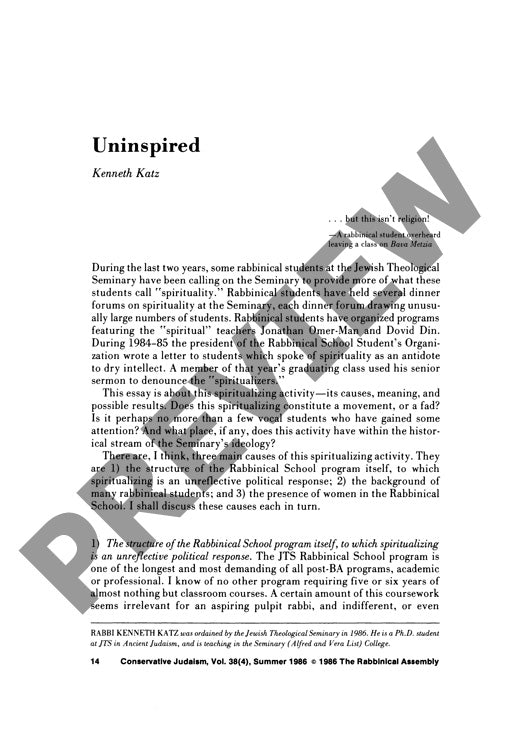Uninspired
Couldn't load pickup availability
A rising tide of "spiritualizing" activity swept through the Jewish Theological Seminary's rabbinical program in the mid-1980s, challenging Conservative Judaism's core principles and traditional emphasis on critical scholarship. Three key factors fueled student demands for enhanced spiritual dimensions: the Seminary's rigorous academic structure, students' mixed American-Protestant-"Buddhist" religious backgrounds, and the integration of women into the Rabbinical School. Through observational analysis of student-led dinner forums and organized programs, alongside examination of the Seminary's founding ideological framework, this research reveals that spiritualizing movements emerged primarily as political responses to institutional frustrations rather than authentic religious revival. Students sought emotional, experiential pietism as an alternative to the Seminary's focus on critical study and halakhic behavior. While participation remained limited to a small group of active students, their approach fundamentally challenged all eight foundational principles of Conservative Judaism's ideology, threatening the movement's established synthesis of American integration, Western scholarship, and Jewish observance. These tensions reflect a broader disconnect between American religious sensibilities and traditional Jewish educational approaches.

More Information
-
Physical Description
-
Publication Information
Published 1986
ISBN
-
Publication Credits
Kenneth Katz

